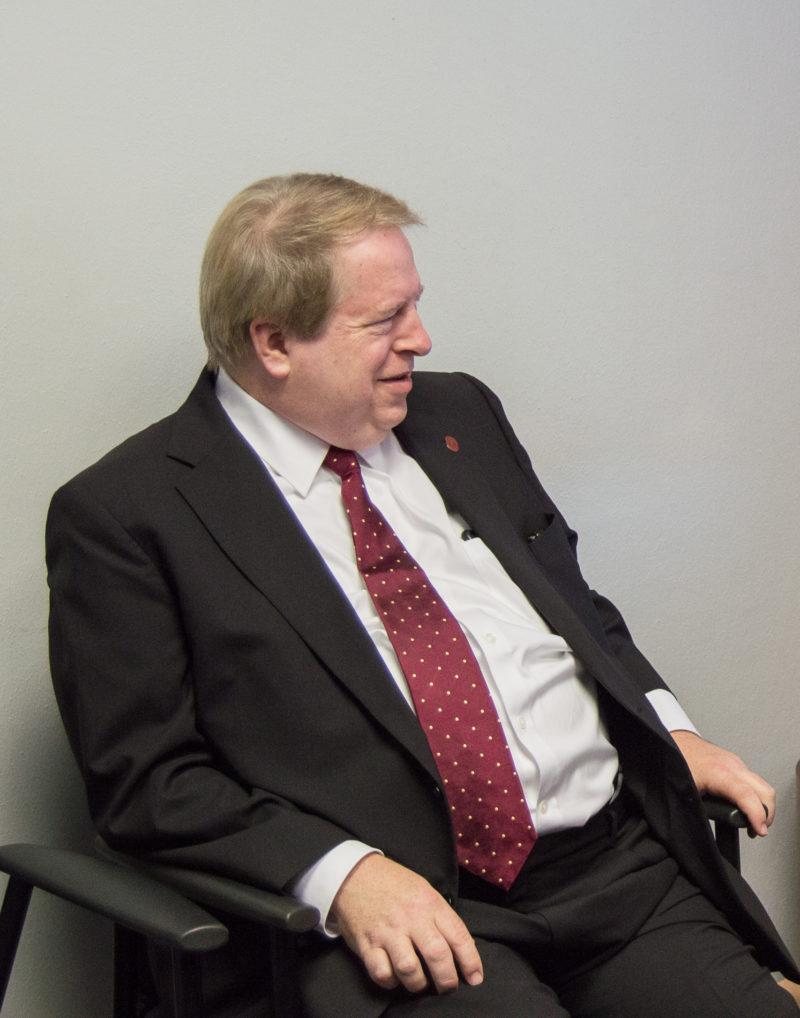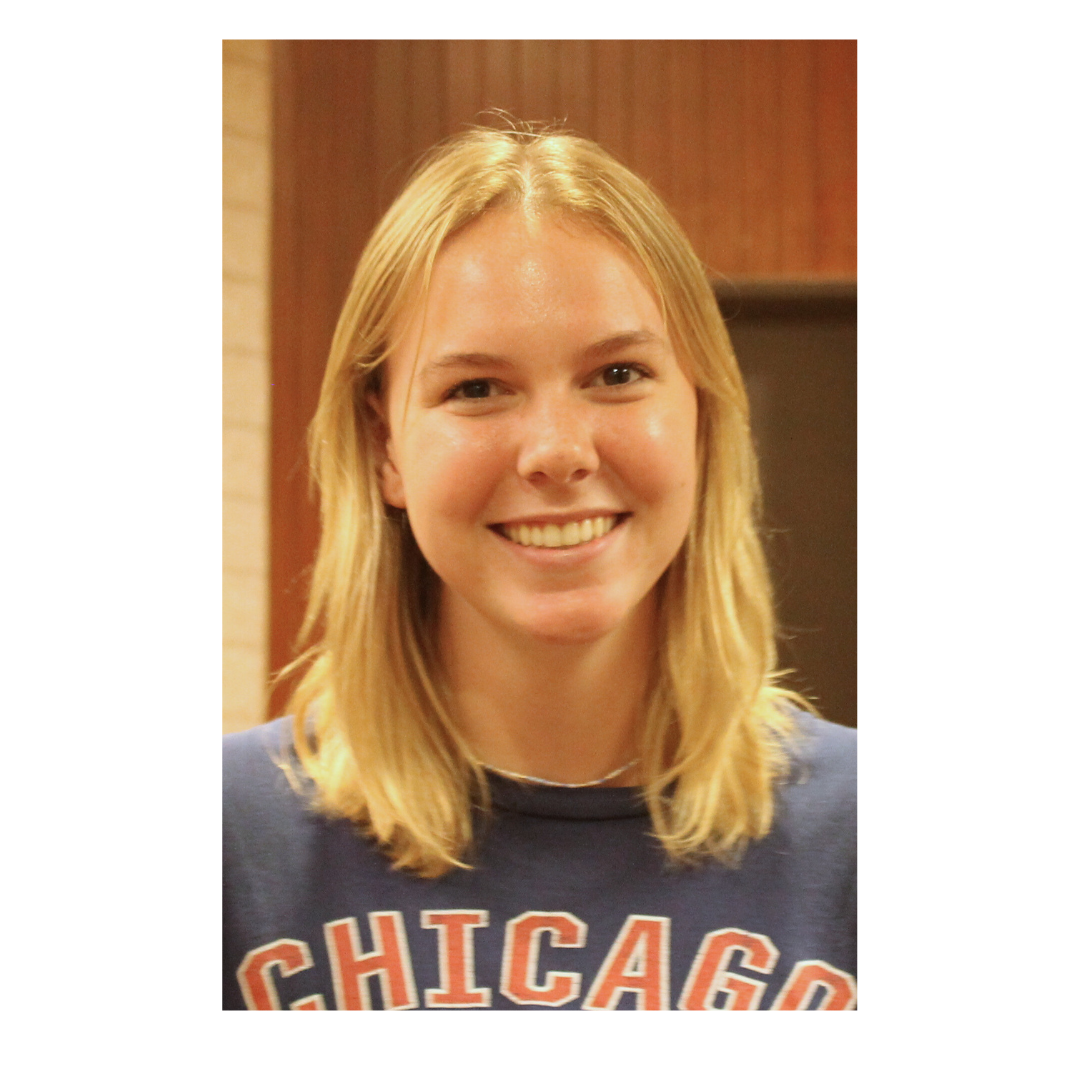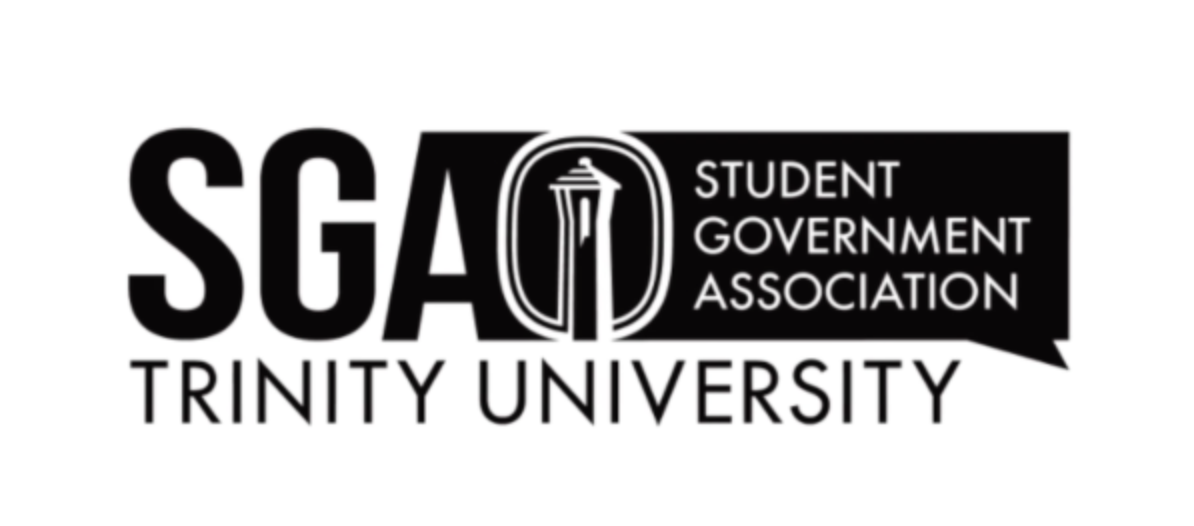James Bradley became Trinity University’s first chief information officer (CIO) on Aug. 28, ending a national search led by Danny Anderson, president of the university.
“I’ve only been here two weeks, and I can already tell you that the culture of this university is fantastic, the people here are wonderful, and there is a focus and an intensity about taking care of the students and providing an environment for your goals to learn and grow that is really wonderful to work as a part of,” Bradley said.
The new CIO position was created in conjunction with the new vice president for strategic communications and marketing, a role recently filled by Trinity alumna Tess Coody-Anders. Charles “Chuck” White, professor of psychology, had held the title of vice president for information resources, marketing and communication until this July. With the advice of the faculty senate and an outside administrative audit, Anderson made the decision to split White’s role into two focused portfolios.
“At one point, the librarians reported to White, IT reported to him, and marketing reported to him. I had multiple pieces of information that made me think that Trinity would be far better served by people who had deep expertise in each of these areas,” Anderson said.
Bradley was selected from a pool of over 130 applicants following a nationwide search. Diane Saphire, associate vice president for information resources, and Arturo de los Santos, associate director of information technology services, co-chaire the committee, which comprised representatives from across the university, from faculty to admissions staff.
“The goal was to have all the different parts of the university that rely on IT to be present at the table and think, “˜What do we need in a person to help us accomplish our goals?'” Anderson said.
Anderson also spoke of the university’s vision to be technologically up-to-date, both in the classroom and in faculty and student research.
“Many universities put all of their emphasis on thinking about classroom technology, instructional technology, and other universities may put all their emphasis on behind-the-scenes technology that’s running the university computer systems, making sure that checks get written, bills paid. I feel like we really need someone with the breadth of experience to help us do both,” Anderson said. “The other thing I know is that there is a real hunger among some faculty members who like using technology in their research, and when they think of blending their teaching and supervised research with students, the easier it is for them to have new technology available, the better. It’s really important for faculty members to have opportunities to experiment with technology.”
Anderson and the committee selected Bradley for his extensive experience in the information technology departments of other universities, his leadership ability and his broad vision for Trinity’s future. Saphire noted Bradley’s passion for high education as a major factor in her decision as part of the search committee.
“Jim is highly focused on students, faculty and staff, and on the educational experience that Trinity provides. While he left higher education for a brief stint in industry, he is excited about being back in higher [education] where his passions lie,” Saphire said.
After working at Tulane University and the University of Houston, Bradley expressed his enthusiasm for taking an active role in developing Trinity’s technological scene.
“One of the things I love is the way President Anderson talks about the school, “˜to be the leading example for a 21st century liberal arts university,'” Bradley said. “You can take an IT job and they don’t really want you to do very much except be quiet, sit in the corner and not cost them too much money. I think Trinity wants IT to be an important part of moving the academic enterprise forward, an important part of the administrative operations in the organization and also something that we can leverage to improve the reputation of Trinity nationally.”
Bradley listed a few places where Trinity’s IT could improve but remains focused on supporting faculty, staff and students.
“There’s a lot of opportunities to do infrastructure work, to make faster networks, better wireless, to deal with things like business continuity and disaster recovery. But at the end of the day, the mission of the university is really the faculty mission of instruction, research and service,” Bradley said.
Bradley’s communication skills were a popular trait addressed by members of the committee as a significant aspect in his appointment.
“One of the things that I really enjoyed about Jim Bradley in particular is that he is a good speaker, but also a good listener,” Anderson said. “He’s a good speaker in terms of being able to tell you what is happening in the field, but I’ve also heard him listen to people who weren’t convinced and engage in a very meaningful, personal conversation with them. I think that fits Trinity well “” someone who’s able to be articulate about where we are going and how we can get there, but someone who’s also open to listening and responding to questions that people have.”
Saphire also advocated for Bradley as an excellent communicator.
“I think what particularly made him stand out in the field of outstanding candidates was his communication skills. He is friendly and approachable and has a collaborative, team-oriented management style,” Saphire said.
Bradley had a message for Trinity students.
“I’m very happy to be here and I will be an advocate for what your needs are in the technology space. I’d be delighted to meet with anybody who wants to talk to me, because if I don’t hear what your concerns are, if I don’t hear the things that matter to you, then I’m not as able to deliver what it is you need,” Bradley said.







